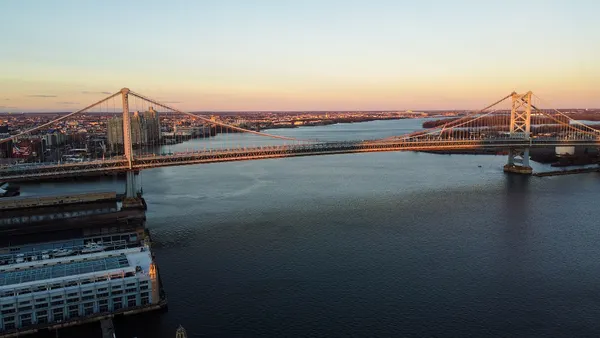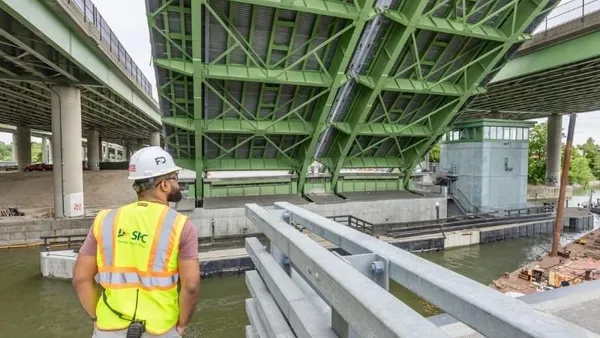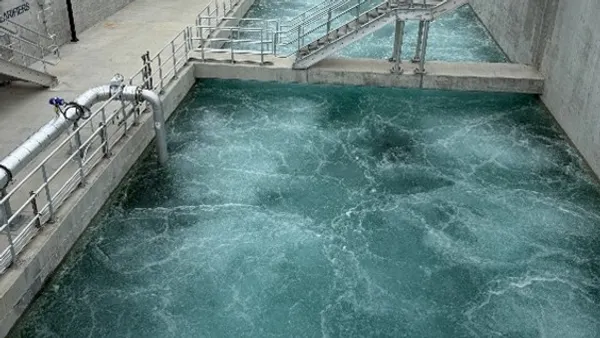Dive Brief:
- Costs for a 7-mile stretch of the light rail system connecting Seattle and Bellevue, WA, have skyrocketed 46% to $712 million, according to The Seattle Times.
- Sound Transit approved the extra $225 million to contractor Kiewit-Hoffman after engineers revealed that adding the weight of track infrastructure and trains to the Interstate 90 floating bridge spanning Lake Washington would require extra resources.
- Concerns over how to keep the bridge afloat despite the weight of the trains was just one of 23 technical issues — including seismic design and the logistics of working around traffic flow — raised by third-party experts that Sound Transit has needed to solve.
Dive Insight:
In a potential setback for the project, the Mercer Island City Council voted last month to sue Sound Transit and the Washington State Department of Transportation over the planned closing of high-occupancy lanes to solo drivers during construction. The Seattle-Bellevue project is part of the larger 14-mile, $3.7 billion East Link Extension, which will connect downtown Seattle with points east. Voters approved funding in 2008 for most of the extension through the Sound Transit 2 measure.
Voters went back to the polls this past November and passed another funding measure, Sound Transit 3 (ST3), that will help pay for a $54 billion mass transit plan connecting an even bigger segment of the Seattle area with 62 miles of light rail and rapid-bus services.
While much of the business community supported the ST3 proposal, the Bellevue Chamber of Commerce came out against it in September prior to the vote, arguing that the costs and benefits were too difficult to determine. The Chamber said it would support smaller projects in the region's high-density areas as an alternative.
There at least seven Washington state projects, including some linked to Sound Transit's plans in the Seattle area, that could be in danger if President Donald Trump is successful in eliminating the Federal Transit Administration's capital investment program. As part of his 2018 budget proposal, Trump said any project that has not entered into a full funding agreement with the FTA will not receive a grant. There are many, multibillion-dollar projects across the country that fall into that category and will have trouble making up the difference if federal dollars are taken off the table.













